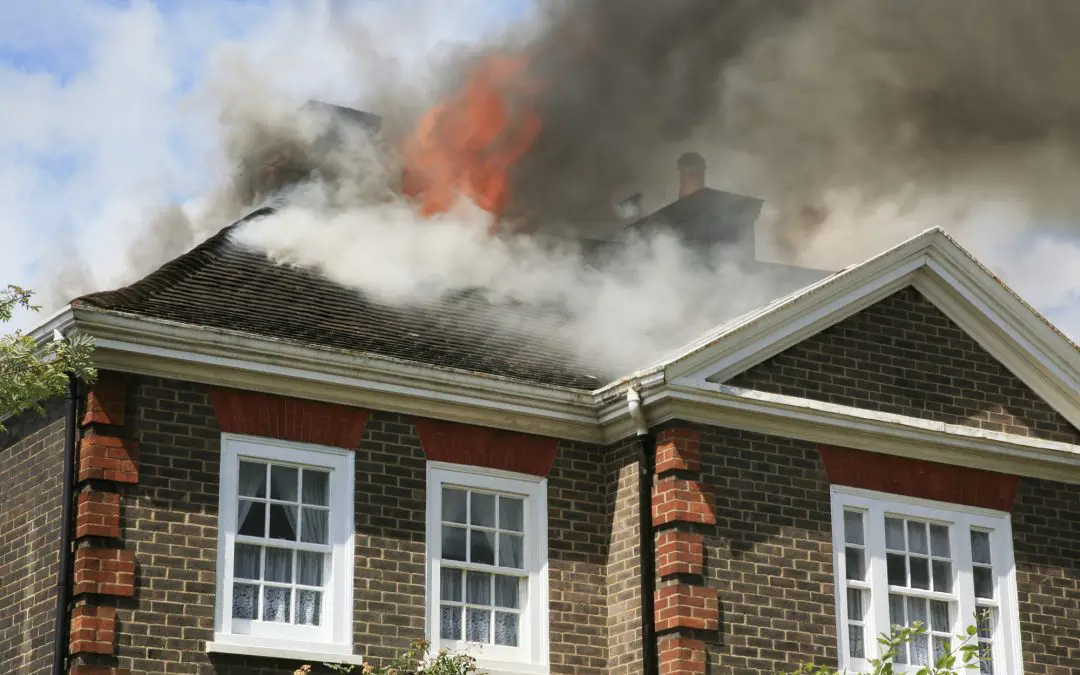There’s nothing like home—a place where memories are made, and you feel safe. But imagine the unthinkable: a house fire sweeping through your house, putting everything you’ve built at risk. The truth is, most house fires are preventable with a bit of know-how and vigilance. Let’s dig into practical, life-saving tips to help prevent a house fire.
Prevent a House Fire While Cooking
Let’s face it—cooking is one of the leading causes of house fires, and they happen more often than you’d think. Have you ever stepped away from the stove “just for a second,” only to get distracted? That’s all it takes for a grease fire to ignite.
Stay in the kitchen while cooking, especially when frying, grilling, or broiling. If a grease fire flares up, don’t toss water on it—it’ll only make things worse. Smother the flames with a metal lid or dump baking soda over them. And don’t forget: keep flammable items like oven mitts, towels, and wooden spoons far from your burners.
Electrical Hazards: Sparks You Can’t Afford to Ignore
Have you ever seen sparks when plugging something into an outlet? This is a serious sign that there’s a problem. Electrical fires are sneaky—they often start behind walls and go unnoticed until it’s too late.
Check your cords regularly for cracks or fraying. If you’re using an extension cord as a permanent fix, stop! Hire an electrician to add more outlets to your house. If your lights flicker or your breaker trips often, call an electrician.
Prevent a House Fire while Using Space Heaters and Fireplaces
There’s nothing better than a cozy fire or cranking up a space heater in winter, but these same heat sources might also start fires if you’re not careful. Place space heaters at least three feet away from anything flammable, such as curtains, furniture, and bedding. Modern space heaters often have auto shut-off features, so if yours doesn’t, it’s time for an upgrade.
Regular maintenance is non-negotiable for fireplaces. Have your chimney cleaned yearly to clear out creosote, a flammable residue that builds up over time. Always use a screen to keep glowing embers from escaping and setting something alight.
Smoke Alarms: Your First Line of Defense
Here’s a fact that might surprise you: three out of five fire deaths happen in homes without working smoke alarms. Don’t be a statistic.
Install smoke alarms in every bedroom, outside sleeping areas, and on every floor. Test them monthly and replace the batteries at least once a year.
Fire Extinguishers: Know How to Use Them
Fire extinguishers aren’t just for show—they’re your backup plan when something goes wrong. Keep them in high-risk areas like the kitchen, garage, and laundry room. And don’t just let them sit there collecting dust; learn how to use them. The PASS method is your guide: Pull the pin, Aim at the base of the fire, Squeeze the handle, and Sweep side to side.
Everyday Habits That Can Save Your Home
Sometimes, it’s the little things that count the most. Did you know that candles cause around 20 house fires every day? Blowing out a candle before leaving the room or going to bed can save you from a house fire.
Have a Plan, Just in Case
Even with all the prevention in the world, emergencies happen. That’s why a fire escape plan is crucial. Walk through your home and identify at least two exits from every room. Choose a safe meeting spot outside and make sure everyone in the family knows where to go and how to get there.
Practice your escape plan a few times a year. Yes, it might feel silly, but when seconds matter, muscle memory can be the difference between safety and tragedy.
Preventing a house fire requires just a bit of vigilance and the right habits. Follow these steps, and your home will be safer.
FAQs About How to Prevent a House Fire
How often should I check my smoke alarms?
Test smoke alarms monthly and replace their batteries every year. Replace the entire unit every 10 years or as recommended.
What’s the best way to put out a grease fire?
Never use water. Instead, smother it with a metal lid or sprinkle baking soda to extinguish the flames.
Do I need to clean my chimney if I don’t use it often?
Yes! Even occasional use can cause creosote buildup, which is highly flammable. An annual cleaning keeps your home safe.
Can I use extension cords for heavy appliances?
No. Extension cords are for temporary use only and can overheat if used with high-powered appliances. Install additional outlets if needed.
What should I do if my fire extinguisher is expired?
Replace it immediately or have it recharged by a professional. Outdated extinguishers may not work when you need them most.
New Image Home Inspections offers home inspection services in upstate South Carolina. Contact us to request an appointment.

